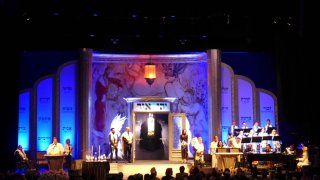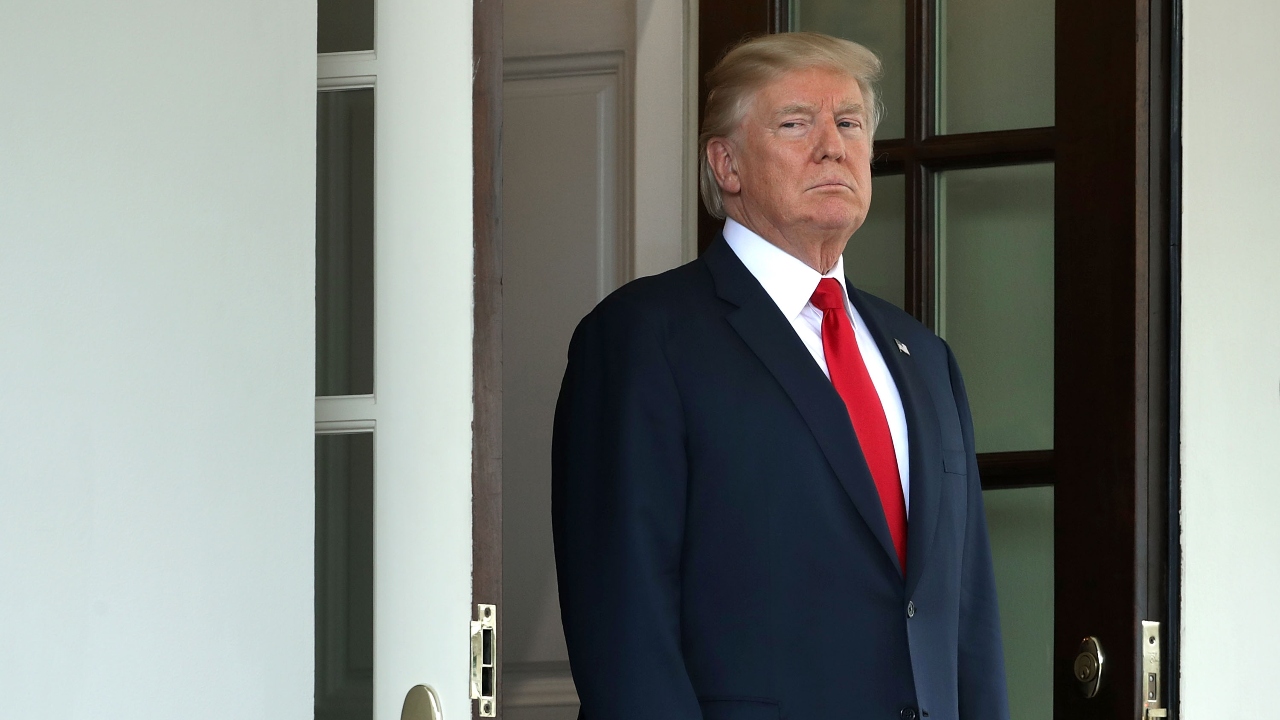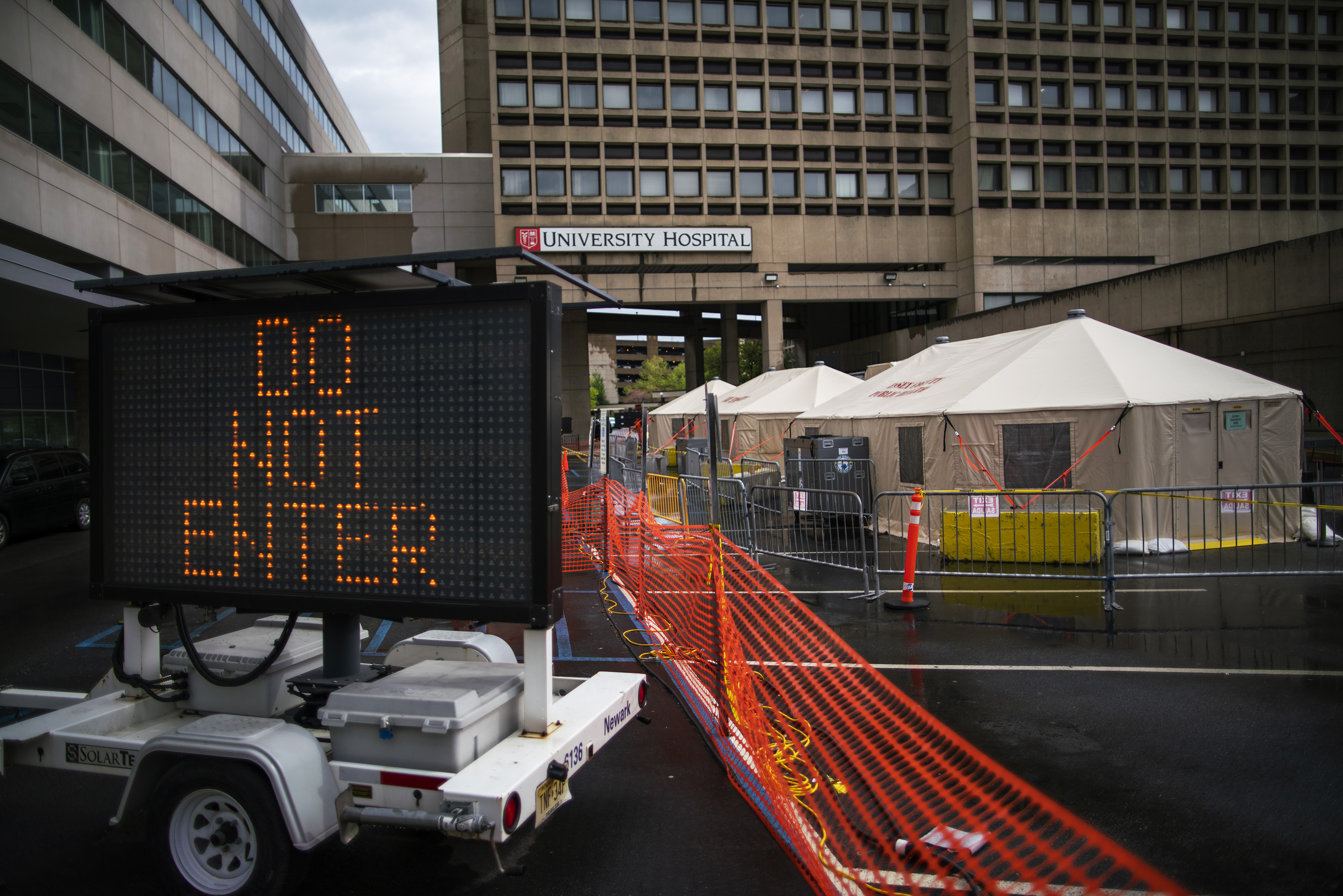
Yom Kippur begins at sundown, with services marking the holiest and most somber day on the Jewish calendar altered because of the coronavirus pandemic.
With indoor religious services in Los Angeles County prohibited under public health orders, synagogues and other Jewish organizations will hold services outdoors and online, just like for Rosh Hashana, the Jewish new year, Sept. 18-20.
"This Yom Kippur will be different from past ones as we miss being able to gather with family, friends and community members in our indoor sanctuaries, singing together and greeting friends with hugs," said Rabbi Ilana Grinblat, the vice president of community engagement for the Southern California Board of Rabbis.
Grinblat told City News Service this will be the first Yom Kippur in her life where she will not be in a synagogue. Instead, she will participate in virtual services from her home.
"In this time, the Jewish community has found that we can be together spiritually even when we are apart physically," Grinblat said. "Virtual services have allowed us to transcend geography and to join together with people throughout the country and the world in prayer, song and in learning."
In outdoor services for Rosh Hashana -- with masks and social distancing required -- "there was comfort in seeing familiar people, even at distance with masks," Grinblat said.
"The services were comforting, inspiring, and uplifting,'' Grinblat said. "The lesson that was learned from Rosh Hashana was that with creativity, we can find ways to join together as a community even while maintaining physical distance."
An example of the creativity cited by Grinblat was last Sunday's Shofar Wave.
People stood on street corners near their synagogues throughout Los Angeles County and a portion of Ventura County and blew a shofar in sequential order, creating a wave throughout the region, with the Shofar serving as a symbol of hope and renewal, according to the federation.
"This was a powerful way of the entire county coming together to bring in the new year as one,'' Grinblat said. ``Hearing the shofar blasts move through the neighborhood from one block to the next was incredibly moving to kids and adults of all ages. Rather than being confined indoors, the shofar took to the streets and the Shofar Wave resonated throughout the county."
The event was organized by the federation, along with its creator, IKAR, which bills itself as a spiritual community, holding services at Shalhevet High School on Fairfax Avenue, just north of Olympic Boulevard.
A shofar is a ram's horn mentioned in the Torah and used by ancient Jews in religious ceremonies and as a call to arms and now used at Rosh Hashana and Yom Kippur.
Jews are biblically commanded to hear the shofar during the High Holy Days.
Yom Kippur concludes at sundown Monday, ending the 10-day period on the Jewish calendar known as Days of Teshuvah, which is variously translated as repentance, return and change. Many Jews fast on Yom Kippur and customarily spend much of the time in synagogues.
According to Jewish tradition, Yom Kippur is the day on which Moses came down from Mount Sinai with the second set of commandment tablets -- he had smashed the first -- and announced God's pardon to the people for worshipping a golden calf.
Observant Jews believe that God inscribes the names of the righteous in the Book of Life on Rosh Hashana and seals the book on Yom Kippur, 10 days later.
For that reason, the traditional greeting among Jews on Yom Kippur is Gemar Chatima Tova, which means "good final sealing" and conveys the wish: "May your name be sealed in the book of life."
Yom Kippur services begin with the Kol Nidre, an ancient prayer that literally means "all vows" or "all promises." The last service of the day ends with the sounding of a shofar.
In his Yom Kippur message, President Donald Trump said, "As the shofar bellows throughout communities this Yom Kippur, we are reminded of how important our faith has been over these past months as we continue to face the challenges posed by the coronavirus.
"Through the Almighty's love and the power of prayer, we have found renewed strength and understanding to face these unprecedented times with stalwart resolve. Today, as so many seek God's forgiveness and mercy, let us all resolve to incorporate these virtues of compassion into our daily lives."
While most congregations require membership and tickets for High Holy Days services, even those held online, there are opportunities to watch services online and on television without membership or a charge.
IKAR will stream its services on its website, ikar-la.org, at 6:15 p.m. Sunday and 10 a.m., 1:15 p.m. and 6:30 p.m. Monday.
Jewish Life Television will broadcast ``Unwritten,'' described as a "new High Holiday Prayer Experience," led by popular Jewish music performer and composer Josh Nelson at 7 p.m. and 10 p.m. Sunday. The network is carried by DirecTV on Channel 366.
The Laugh Factory will have free streams of Yom Kippur services at 11 a.m. and 6 p.m. Monday. They can be found on The Laugh Factory's YouTube channel, on Instagram at laughfactoryhw and Facebook at @LaughFactoryHW.
"At this moment -- when we face multiple crises, the health crisis, the economic crisis, social justice crises and environmental crises -- these High Holidays are more powerful and important than ever," Grinblat said.
"We desperately long for transformation in the new year. These experiences of the Shofar Wave, virtual services and outdoor, socially distanced services with masks have allowed our community to come together safely.
"In these innovative ways, we are moving forward into this new year with inspiration and renewed resolve to strengthen the community and improve our world."



